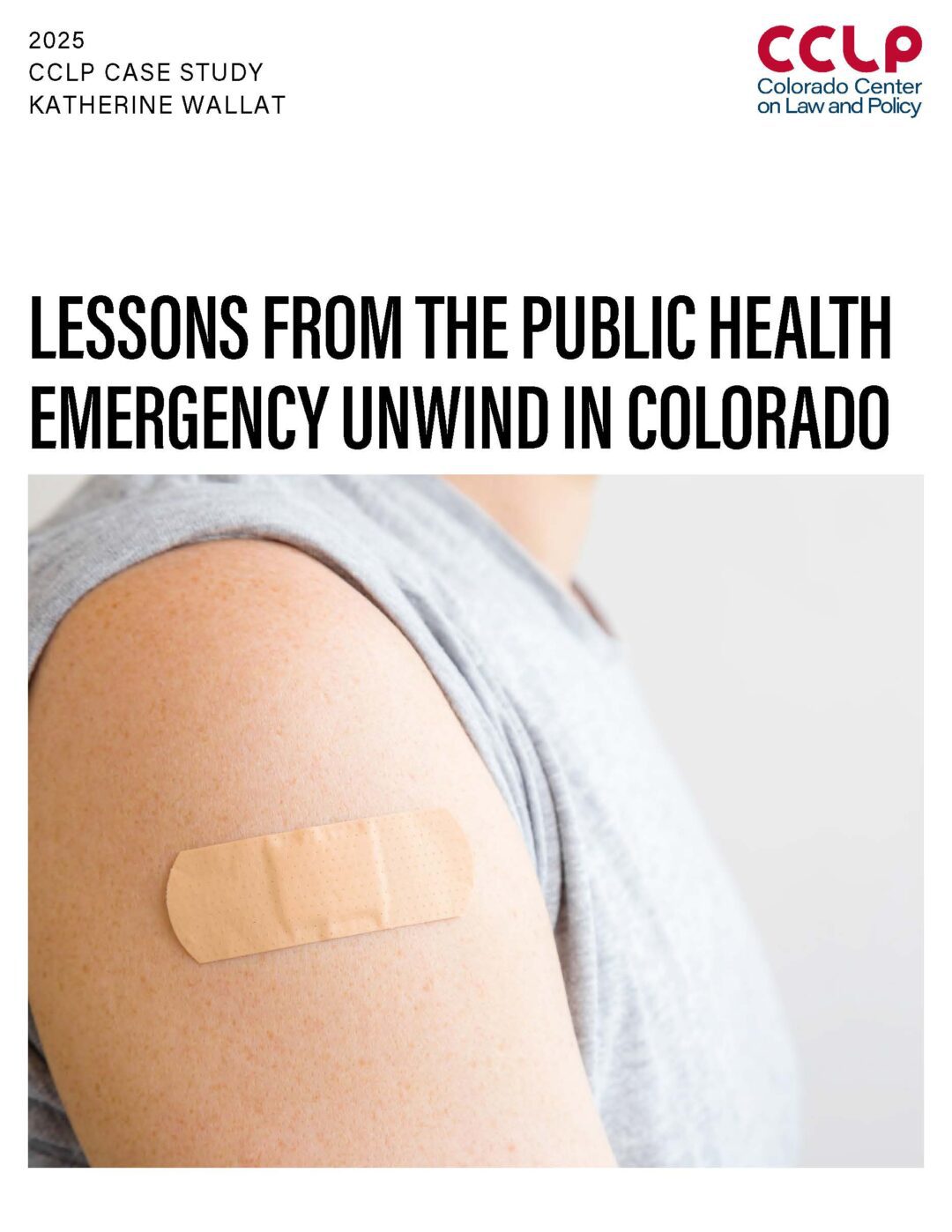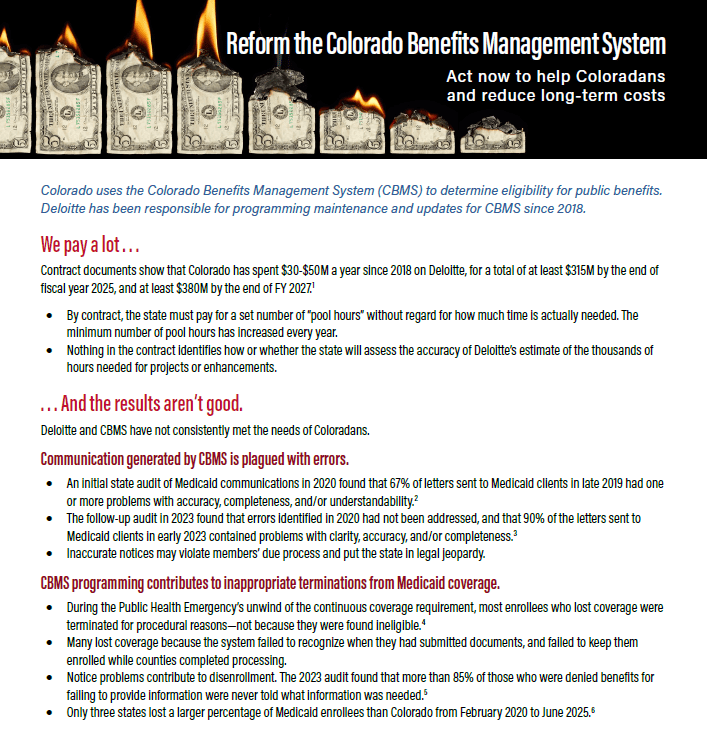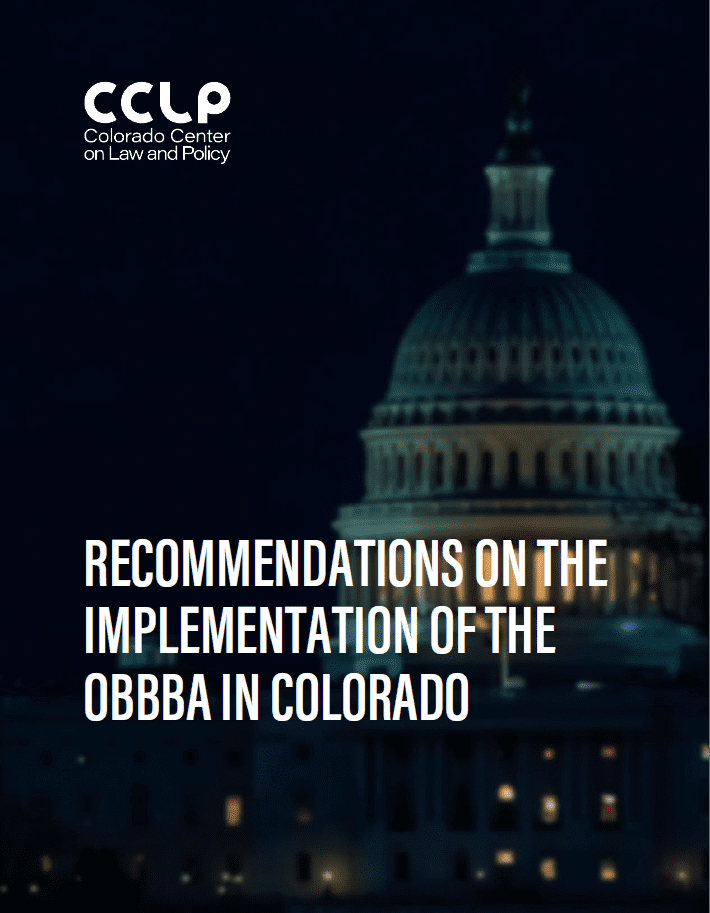View File
The gap between the wealthiest Coloradans and everyone else turned into a chasm following the Great Recession, according to a report released today. In that time, Colorado’s top 1 percent accounted for all of the state’s growth in income, while the other 99 percent saw a decline in income.
The report, The Increasingly Unequal States of America, is published by the Economic Policy Institute. EPI’s Colorado partners include The Bell Policy Center, the Colorado Center on Law and Policy and the Colorado Fiscal Institute.
The report found that in Colorado, between 2009 and 2011:
- The wealthiest 1 percent accounted for all of the income growth – one of 17 states where that happened.
- The top 1 percent saw income growth of 23.5 percent, while the other 99 percent of Coloradans saw income decline by 4 percent.
- The average income for the top 1 percent in Colorado in 2011 was $1,098,682, while the average for the bottom 99 percent was $46,837.
“This has to be our priority in Colorado,” said Wade Buchanan, president of the Bell Policy Center. “It starts with opening doors to opportunity for Coloradans, because opportunity motivates effort, unleashes talent, feeds a dynamic economy and stimulates creativity and invention.”
Claire Levy, executive director of the Colorado Center on Law and Policy, said the growing disparity in income is a troubling trend that did not happen randomly.
“That disparity reflects policy choices in recent years that have prevented us from experiencing shared prosperity,” Levy said. “We should be adopt policies that create an economy that allows everyone to flourish.”
Carol Hedges, executive director of the Colorado Fiscal Institute, said the data shows Colorado needs to adopt policies that promote widespread prosperity, such as significant new investments in K-12 and higher education.
“When Coloradans in every corner of the state can get a quality education, they can compete for high-quality jobs and command the earning power necessary to propel the economy,” Hedges said.
In assessing a longer-term period of inequality, the report found that from 1979 to 2007, Colorado generally tracked national averages (all data is adjusted for inflation):
- The top 1 percent income recipients in Colorado saw their income rise by 200.8 percent for the period. (For the U.S average, the comparable number is 200.5 percent.)
- The bottom 99 percent saw their income rise by 21.2 percent. (U.S. average: 18.9 percent.)
- The 1 percent in Colorado took home 48.3 percent of all income growth in the state in that period. (U.S.: 53.9 percent.)
- Colorado ranks 15th for income growth for the top 1 percent. Connecticut led the way with 414.6 percent, while West Virginia was last, at 74.1 percent.
- Among neighboring states, Colorado ranked behind only Wyoming and Utah in income growth for the 1 percent. Wyoming’s 1 percenters saw their income rise by 354.3 percent (versus a loss of 0.8 percent for the 99 percenters). Utah’s numbers were 214.9 percent and 15.4 percent.
- In 1928, the previous high-water mark for inequality, Colorado’s 1 percenters took home 19.3 percent of state income. In 1979, it was 9 percent, and in 2007, it was 19.7 percent.
- From 1928 to 1979, the 1 percent’s share of all state income declined by 10.3 percent. From 1979 to 2007, the 1 percenters’ share of state income increased by 10.7 percent.
The authors of The Increasingly Unequal States of America compiled data from the Internal Revenue Service for every state – the amount of income and the number of taxpayers in different income ranges – from 1928 to 2011. In tracking the recent prolonged period of inequality, the authors started with 1979 because that was the peak of a business cycle and because that year is seen as a starting point for rising income inequality. It ends with 2007 because it was the peak of the most recent business cycle.
Link to report: http://www.epi.org/publication/unequal-states/
Contacts:
Joe Watt, The Bell Policy Center, (303) 297-0456 ext. 217
Terry Scanlon, Colorado Center on Law and Policy, (303) 957-8137
Tim Hoover, Colorado Fiscal Institute, (720) 379-3019 ext. 226




CCLP Public Comment to HHS Reinterpretation of Federal Public Benefit
Public Comment, Publications